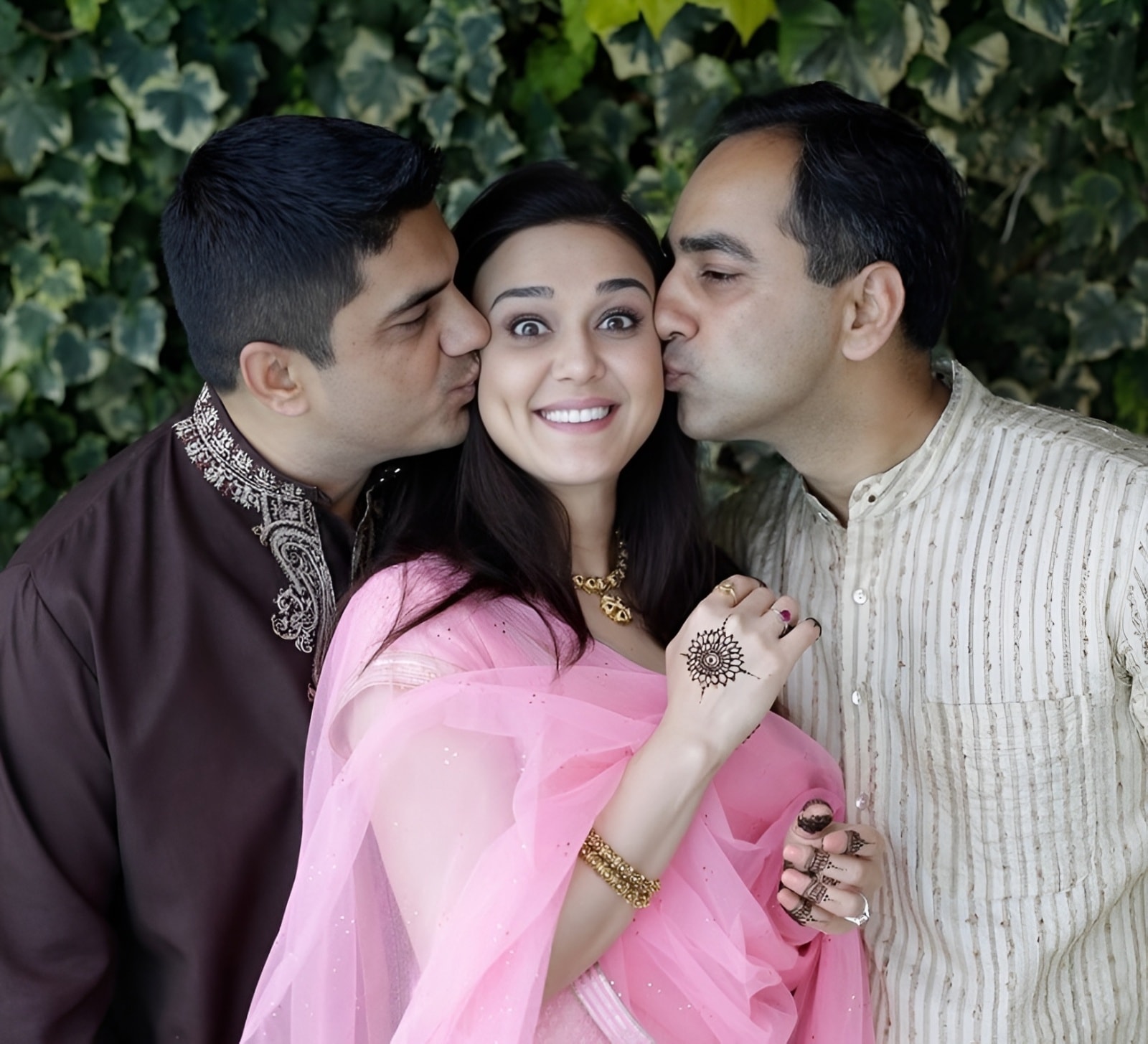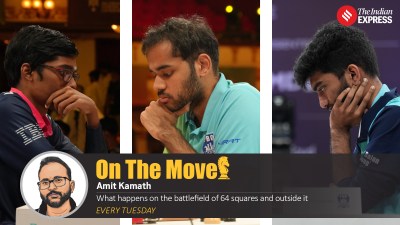📣 For more lifestyle news, click here to join our WhatsApp Channel and also follow us on Instagram
‘Poori raat main table ke neche…’: When Preity Zinta hid under a table after hitting brother; psychologists explain why children hide in fear
Fear-based parenting or harsh reactions to mistakes condition children to associate errors with rejection or punishment.
 Preity Zinta once recalled how she hid under the table for the whole night, after fearing getting scolded by her parents (Photo: Instagram/Preity Zinta)
Preity Zinta once recalled how she hid under the table for the whole night, after fearing getting scolded by her parents (Photo: Instagram/Preity Zinta)Sibling fights are universal, and so is the fear of being punished afterwards. Preity Zinta, who has an elder brother, once shared a childhood memory on the then-popular talk show Jeena Isi Ka Naam Hai. After a fight escalated, Zinta ended up hitting her brother on the head, leaving him in tears. “Uski aur meri ladai ho gayi ek bari aur maine patthar leke uska sar phod diya… phir wo rone lag gaya” [We had a big fight and I hit his head with a stone, and then he started crying].
The Veer-Zaara actor recalled how her father reacted whenever she cried: “Jab main chhoti thi to kabhi bhi roti thi to mere papa mujhe bolte the, ‘Tum Rajput nahi ho, tum Rajput ki dum ho… Rajput rote nahi hain’” [When I was little and cried, my father would tell me: you’re not a real Rajput, Rajputs don’t cry]. Innocently repeating what she had learnt, she slapped her brother and told him the same thing: “Maine fatak karke ek thappad maar ke bola, ‘Tum Rajput nahi ho, rona band karo.’ He stopped crying.”
But the temporary fix didn’t calm her nerves. When she heard her mother return home, little Preity panicked at the thought of being scolded. Terrified, she crawled under a table, fell asleep, and ended up spending the entire night there. “Mom aayi to mujhe pata tha ki ab dhulai hone wali hai, to main table ke neeche chhup gayi. Puri raat main table ke neeche so gayi” [When my mum came home, I knew I would be scolded, so I hid under the table. I slept there the whole night].
 “Jab main chhoti thi to kabhi bhi roti thi to mere papa mujhe bolte the, ‘Tum Rajput nahi ho, tum Rajput ki dum ho… Rajput rote nahi hain’”
“Jab main chhoti thi to kabhi bhi roti thi to mere papa mujhe bolte the, ‘Tum Rajput nahi ho, tum Rajput ki dum ho… Rajput rote nahi hain’”
Naturally, her parents panicked and began a frantic search, even involving the police. “In logon ne socha ki main darr ke maare ghar chhod ke chali gayi hoon. Logon ko bheja idhar-udhar, police ko bulaya” [They thought I had run away out of fear. They sent people searching and even called the police].
The story ended happily the next morning when the family’s maid finally spotted the little girl. “Main puri raat table ke neeche so rahi thi. Subah bai ne aake mujhe dekha ki yeh toh yahan baithi hui hai” [I had been under the table all night. In the morning, the maid found me sitting there].
While humorous and relatable, the incident highlights an important aspect of the parent–child dynamic. Taking a cue from Zinta’s experience, we asked Ms Arpita Kohli, psychologist at PSRI Hospital, why children instinctively hide after making a mistake.
Q. When a child is told things like “Rajputs don’t cry” or “Be strong, don’t cry”, how does it affect them emotionally?
Ms Kohli tells indianexpress.com that discouraging a child from crying makes them associate emotions with weakness or shame. “This creates emotional suppression, where the child learns to hide their true feelings instead of processing them in a healthy way,” she explains. Over time, this can lead to difficulties in emotional regulation, anxiety, or even anger issues. “It might look like resilience, but it teaches a child that vulnerability is unacceptable.”
Q. When children mock or dismiss someone else who’s crying, what does that reveal about what they’ve learnt?
Children imitate what they see. “When a child mocks another for crying, it reflects learned insensitivity — they are repeating what was normalised for them,” Kohli says. This prevents empathy from developing. “If a child grows up in an emotionally invalidating environment, they may struggle to understand others’ feelings as well as their own.”
 Preity Zinta has an elder brother, Deepankar and one yongder brother, Manish (Photo: Instagram/Preity Zinta)
Preity Zinta has an elder brother, Deepankar and one yongder brother, Manish (Photo: Instagram/Preity Zinta)
Q. Why do some children become so fearful of punishment that they hide after making a mistake?
“Fear-based parenting or harsh reactions to mistakes condition children to associate errors with rejection or punishment,” she explains. Instead of accountability, their instinct becomes self-protection. “These children hide, lie, or withdraw to avoid confrontation. Over time, this harms self-esteem and discourages open communication.”
Q. How can parents ensure that a child’s first instinct after making a mistake is honesty, not fear?
According to Kohli, the key is creating an emotionally safe environment where honesty is valued more than perfection. “When a child makes a mistake, parents should stay calm, listen first, and explain consequences instead of reacting with blame or shame.” She recommends positive reinforcement, such as acknowledging honesty even when the child admits wrongdoing. “Phrases like ‘I’m glad you told me’ or ‘We’ll fix this together’ help children trust that mistakes are part of learning, not reasons for punishment.”
📣 For more lifestyle news, click here to join our WhatsApp Channel and also follow us on Instagram
- 01
- 02
- 03
- 04
- 05



























